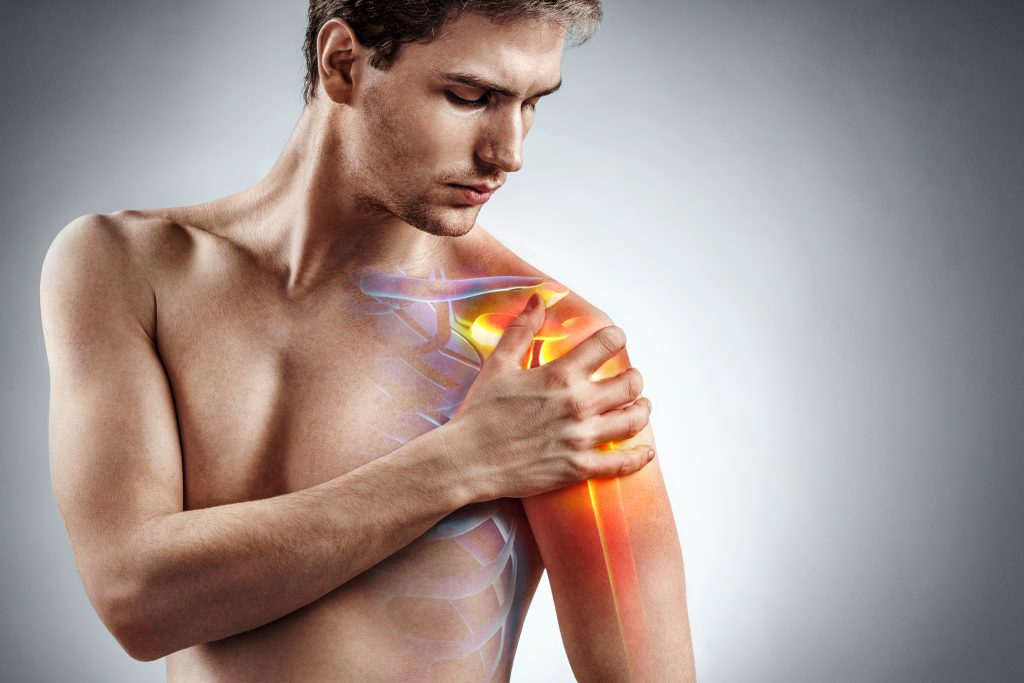Cause of muscle inflammation
To muscle inflammation occurs when we load the muscles of the body with strenuous exercise, but inflammation can also occur when we do not move enough and do not have enough physical activity, so we start with exercise or effort at once without gradually increasing the intensity of exercise. This inflammation is not a health hazard, but it can be painful because we put more strain on the muscles of the body than they could handle.
When the body is at rest, it gets its energy from fat in the presence of oxygen in the muscles, but with intense exercise, the process of wasting energy looks completely different. During stronger physical activity, energy is used from carbohydrates and no oxygen is needed in the process, and the product of this anaerobic process is pyruvate, a pyruvic acid which eventually needs oxygen to be degraded. Strong muscles have good circulation and are well supplied with oxygen, so pyruvate is easily converted into energy. However, in underdeveloped muscles there is not enough oxygen, pyruvate will be converted into lactic acid which will lead to muscle inflammation, pain and muscle weakness.
Symptoms of muscle inflammation
Symptoms code muscle inflammation they occur as pain, burning, and weakness felt in the muscles. Sometimes the pain is moderate because people who exercise regularly and know very well because in their exercises they gradually increase the intensity of muscle strain, so this moderate pain is a sign to them that they have exercised well.

In addition to this moderate pain, muscle inflammation can also cause muscle tension, tremors, and muscle tremors called muscle tremors. In addition, general weakness and fatigue are regular side effects of increased effort. Real severe pain will develop after a day or two after stress, and this pain can last for several days. During this period while the muscle is in pain it recovers and grows after exercise. It is not recommended to take painkillers during this period.
In severe cases that can occur with extreme exertion, usually in athletes, such inflammation can occur that will cause the muscle itself to stop functioning, dizziness, nausea and vomiting. But athletes who are exposed to such efforts exercise under the supervision of their sports doctors who will respond in a timely manner to avoid permanent injury.
Treatment of muscle inflammation
Treatment muscle inflammation Medications are only possible by taking painkillers such as aspirin or ibuprofen, but they will ease the pain and stop the natural process of muscle recovery, and the muscles will weaken and will not build which was the goal of exercise.
Prevention and good training planning is a better option than straining the muscles to cause muscle inflammation. Before exercising, it is necessary to warm up the muscles and stretch, and in this way we prevent possible injuries. If muscle inflammation does occur, there are several natural ways to relieve pain and allow your muscles to heal naturally.
Massages are most effective for resolving muscle inflammation, but cold compresses that are put on the muscles can also help. Light training after the main workout in the form of cardio training, light running or jumping on the spot can also help relax muscles and pain. A warm cold shower that is applied alternately for ten seconds can very easily relieve pain. Or just lie on the bed and lean your legs against the wall so that the lactic acid drains from the muscles, so the pain should be reduced. Proper nutrition with lots of fruits and green vegetables along with proper exercise will help you avoid muscle inflammation and the pain that accompanies inflammation.
Anti-inflammatory diet
Some foods contain nutrients that may help reduce inflammation.
- olive oil
- high fiber foods
- tomatoes
- nuts, such as walnuts and almonds
- leafy greens, including spinach and kale
- fatty fish, such as salmon and mackerel
- fruit, including blueberries and oranges
source: medicalnewstoday
MORE HEALTH NEWS: What is Insomnia, Cause, Symptoms and Treatment